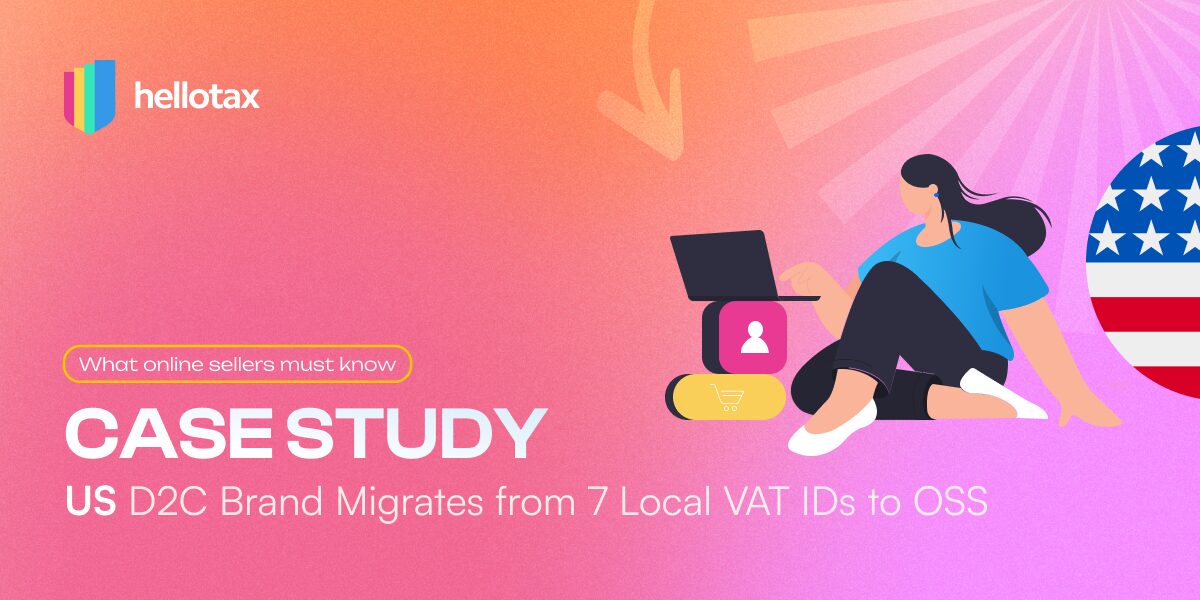As an online merchant, you not only have obligations to your customers, but also to the state in which you operate your business. Probably the most tangible obligation is the payment of your sales tax, which you must regularly pay in full in order to be allowed to run your business. We will explain to you when you have to submit your advance VAT returns and pay your VAT.
Patrick Moeller
Last Updated on 23 February 2021
HMRC: VAT payment dates UK
In the UK, you can choose between different payment methods or periods for filing your advance VAT returns, partly determined by your personal preference, partly by your turnover directly. The usual frequency is quarterly submission of your advance VAT returns. However, a monthly submission or an annual submission is also possible and partial payments can also be added. We give you an overview.
Quarterly VAT return dates
By default, you will submit your advance VAT returns on a quarterly basis and pay your VAT accordingly four times a year. At the end of each quarter, you submit your advance VAT return. Finally, the payment of the VAT is due by the last working day of the month following the quarter. Depending on the payment method, it can take up to three working days for the payment to reach HMRC, so it is advisable to make the transfer a little earlier.
Example: The first quarter of the year ends on 31 March. If you want to submit the advance VAT return for this period, this must be done by 30 April – that is, by the last day of the following month – and the payment must also be received by HMRC by then. With electronic payment, which is common, you have seven days more, until May 7 in this case. Means, usually that is the date that counts for you.
Due dates for your advance sales tax return and sales tax payment:
- Quarter 1 (January to March): April 30, or May 7 for electronic payments
- Quarter 2 (April to June): July 31, or August 7 for electronic payments
- Quarter 3 (July to September): October 31, or November 7 for electronic payments
- Quarter 4 (October to December): January 31, or February 7 for electronic payments
Your payment must always correspond to the figure shown on your advance VAT return as the result for that period. Even if you know that you have an outstanding credit balance with HMRC, you must not deduct this independently from the total. HMRC will refund the excess tax to you independently.
Annual accounting scheme
As an alternative to submitting your advance VAT return on a quarterly basis, you have the option of submitting it only once a year using the annual accounting scheme. However, this requires that you have an annual turnover of less than £1.35 million. Only if this is the case, you can apply for the annual accounting scheme at HMRC. However, submitting an annual VAT return does not mean that you only pay VAT once a year.
You still have to make advance payments on your sales tax several times a year – you can choose between monthly or quarterly payments. The amount of these advance payments is determined by the amount of your last advance VAT return or by an estimate if your company is new and has never submitted an advance VAT return.
If you choose the monthly payment method, you must make your payments on account by the end of each month from April to December. In this case, the advance payments amount to 10% of the presumed total amount of your annual advance VAT return.

If you decide to pay quarterly instead, you will have to make a down payment of 25% of the expected total by the end of April, the end of July and the end of October.
Under the annual accounting scheme, you must submit your advance VAT return within two months of the year in question, i.e. by the end of February of the following year. Once you have submitted your one-off VAT return to HMRC, it will be offset against the relevant payments on account and you will either receive a tax refund if you have overpaid or pay the outstanding amount.
Prerequisite for the annual accounting scheme is, as mentioned above, an annual turnover of less than £1.35 million. Furthermore, you must not be in arrears with your VAT payments and you must not have left the annual accounting scheme within the last twelve months. If your annual turnover exceeds £1.6 million, you must leave the annual accounting scheme.
Monthly VAT returns
If you cannot or do not want to use either the quarterly or the annual payment method, you can apply for monthly returns. In this case you have to file your VAT returns monthly and pay the VAT accordingly. The deadline for both is similar to the deadline for quarterly returns: They have to be submitted by the last day of the following month or, in case of electronic payment, seven days later. For the month of January, the deadline would therefore be February 28 or 29, or March 7.
As a rule, you are obliged to stay in this model for one year if you decide to do so. You can apply for this using form VAT 484.
Payments on account
If you exceed an annual turnover limit of £2.3 million, you must make advance payments to HMRC. Your advance VAT returns must be submitted on a quarterly basis. The payments on account are equal to 1/24 of the expected total amount of your annual VAT. The payments on account must be made by the last working day of the second and third month of each quarter.
Unlike the other accounting schemes, you are not allowed to extend the deadline by seven days for electronic payments. The regulation for payments on account starts in the first quarter after you have reached the turnover limit. Until the next annual cycle, however, your payment method remains the same. When the next annual cycle starts depends on the month in which the respective VAT quarter ends.
The following table gives you information about it:
VAT payment dates Ireland
The due dates for your VAT in Ireland are different from those in the UK. In Ireland, your advance VAT returns, as well as your VAT payments, are due on the 19th day of the following month of your accounting period. For users of the Revenue Online Service (ROS), the deadline is extended by four days. In this case, the corresponding declarations and payments must be made by the 23rd day of the following month.
Means: If you want to file sales tax for the first quarter of the year from January to March, this must happen by April 19. For ROS filers, the deadline is April 23.
In Ireland, the classic billing method is not quarterly, but rather a period of two months, beginning on January 1. The period would end on February 28 or 29, and the first payment would therefore be due on March 19 or 23. However, the billing periods can be changed upon request.
The following models are available:
- monthly returns
- annual returns if you make constant installment payments by direct debit
- four-monthly returns if your annual sales tax liability is between €3,001 and €14,400
- semi-annual returns if your annual sales tax liability is €3,000 or less
Summary
It is extremely important for your company to submit the advance VAT returns on time and to pay your VAT on time as well. If you miss the deadlines, you have to expect penalties, which are still manageable for a single offense.

Book a free consultation
Our VAT experts are happy to help you. Book a free consultation today!
However, if you miss the deadlines repeatedly, you may be subject to severe penalties. Accordingly, you should always adhere to the due dates and keep an eye on them with tools like hellotax.


